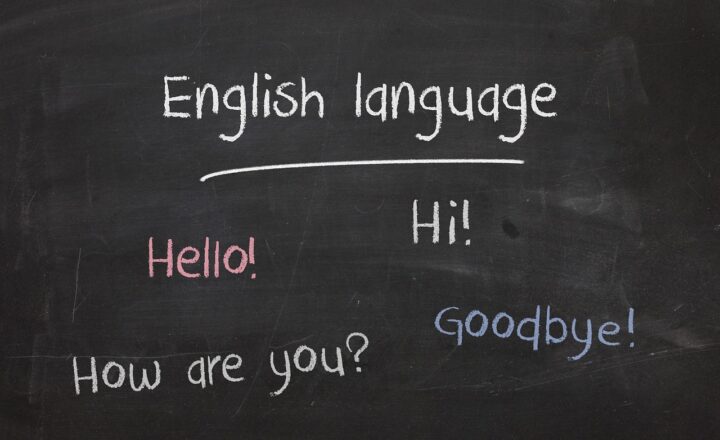How Cultural Festivals Foster Unity in an Increasingly Globalized World
November 17, 2024

In today’s rapidly globalizing world, cultural festivals stand as vibrant celebrations that not only reflect the diversity of human expression but also act as powerful platforms for fostering unity and understanding among people from different backgrounds. As the world becomes more interconnected through technology, travel, and commerce, these festivals serve as a reminder of our shared humanity while celebrating the distinct traditions and practices that define our individual cultures.
1. The Essence of Cultural Festivals
Cultural festivals are dynamic events that usually involve a series of activities that celebrate the arts, music, food, and traditions of a specific community or culture. They may commemorate historical events, honor specific deities, celebrate seasonal changes, or simply bring together people to enjoy and appreciate cultural expressions.
These festivals offer unique opportunities for cultural exchange and interaction. They allow visitors and participants to explore the rich tapestry of traditions, from traditional dances and crafts to savory cuisine and music styles, encapsulating the essence of a particular culture. More importantly, they unite people, breaking down barriers and fostering relationships based on shared experiences and respect for diversity.
2. Bridging Gaps in a Diverse Society
Cultural festivals play a crucial role in bridging gaps in increasingly diverse societies. In places where multiculturalism is prevalent, these events encourage inclusivity by bringing together various cultural groups. Attendees from different backgrounds come together to celebrate, learn, and appreciate each other’s heritage.
For instance, events like the Notting Hill Carnival in London or the Diwali Festival in Toronto attract thousands of participants from various cultures, highlighting the beauty of global unity. This participation allows individuals to engage with others, fostering understanding and respect. People start to see beyond stereotypes and generalizations, building relationships that transcend cultural boundaries.
3. Economic and Social Benefits
Cultural festivals also bring significant economic benefits to local communities. They can boost tourism, drive local business sales, and create job opportunities. When done right, organizers can help paint their regions as cultural hubs, attracting tourists eager to experience the richness of local traditions.
In addition to economic advantages, these festivals promote social cohesion. Community members often collaborate to plan and execute these events, which fosters teamwork and strengthens community bonds. As people work together toward a common goal, they can celebrate diversity while creating a collective identity, making the community stronger.
4. Educating Through Engagement
Cultural festivals provide invaluable opportunities for education and awareness. Through workshops, discussions, and performances, attendees gain insights into traditions and practices outside their own experiences. It allows cultural narratives to be shared in ways that are relatable, often leading to a greater understanding of global issues.
Organizations often leverage these festivals to bring attention to social issues, cultural rights, and the importance of preserving endangered traditions. Festivals like the International Festival of Arts and Ideas in New Haven serve as platforms for storytellers and artists to address contemporary topics such as migration and identity while acknowledging the influences of globalization.
5. Celebrating Creativity and Artistic Expression
The role of artistic expression remains a cornerstone of cultural festivals. From visual arts to theater, dance, and music, these festivals showcase local talent alongside international artists, creating cross-cultural exchanges. They serve as spaces for creativity to flourish, where individuals can express their identities through various forms of art.
This celebration of creativity helps to highlight the common human experience. Artists often draw inspiration from universal themes of love, struggle, and triumph, allowing attendees to connect through shared emotions and experiences. By participating in festival activities, people can form lasting memories and connections, reinforcing the idea of unity through shared experiences of joy and expression.
6. Future of Cultural Festivals in Globalization
As cultural festivals continue to evolve amidst globalization, their significance becomes increasingly important. In an age where cultural homogenization is a concern, these events serve as vital lifelines for preserving unique identities and traditions. They not only celebrate differences but also create spaces for dialogue about how globalization impacts local cultures.
Innovative technologies, such as virtual reality and live streaming, are beginning to transform how festivals reach audiences. This can further amplify their messages of unity and understanding as audiences worldwide can engage with cultures they may never experience in person.
Cultural festivals must navigate the challenge of balancing authenticity with the need to adapt to a global audience. However, as they do so, they continue to invite people into a world where cultural differences are celebrated, and shared humanity prevails.
Conclusion
Cultural festivals undeniably play an integral role in fostering unity in our increasingly globalized world. They provide essential platforms for education, celebration, and interaction, bridging cultural divides and creating spaces for creativity and artistic expression. As we move forward into an uncertain future, the importance of these events will only increase, cultivating respect and appreciation for the rich tapestry of humanity while reminding us of our shared values and experiences. Ultimately, cultural festivals act as beacons of hope, showcasing the potential for unity in diversity.








